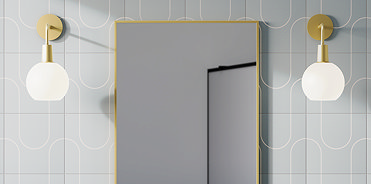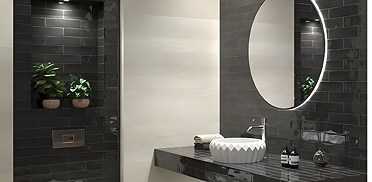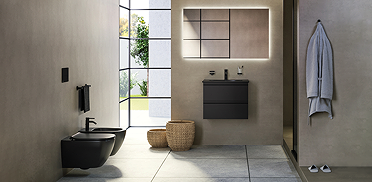Grab Up To 60% Off In Our February Sale!
Valentine's Deal + Extra 10% Off Taps With TAPS10. Ends:
What are the 3 Types of Toilet?
What are the 3 Types of Toilet?
Until you needed to buy one, I bet you didn’t realise there were 3 main types of toilet to choose from. But what are they? We explain all...

A toilet is a toilet in the eyes of many people, but if you’ve ever wondered which types of toilet are most popular, we go into more detail about the three main styles below. Many people will likely be using a close coupled toilet, which is by far the most common design, but as with any other bathroom fixture, there are alternatives available. Finding the right one can make all the difference to your overall décor and space, so, without further ado, let’s take a look at the three types of toilet that you’re most likely to find in the average British bathroom.
Close coupled toilet
The most common type of toilet in the UK is the close coupled toilet. These feature the cistern on prominent display, sat on top of the toilet bowl, with a pedestal underneath attached to the floor. There are several different types of flush mechanisms available, depending on the style of the close coupled toilet. This can vary from the more traditional flushing handle to dual flush buttons that can help reduce the amount of water being used.
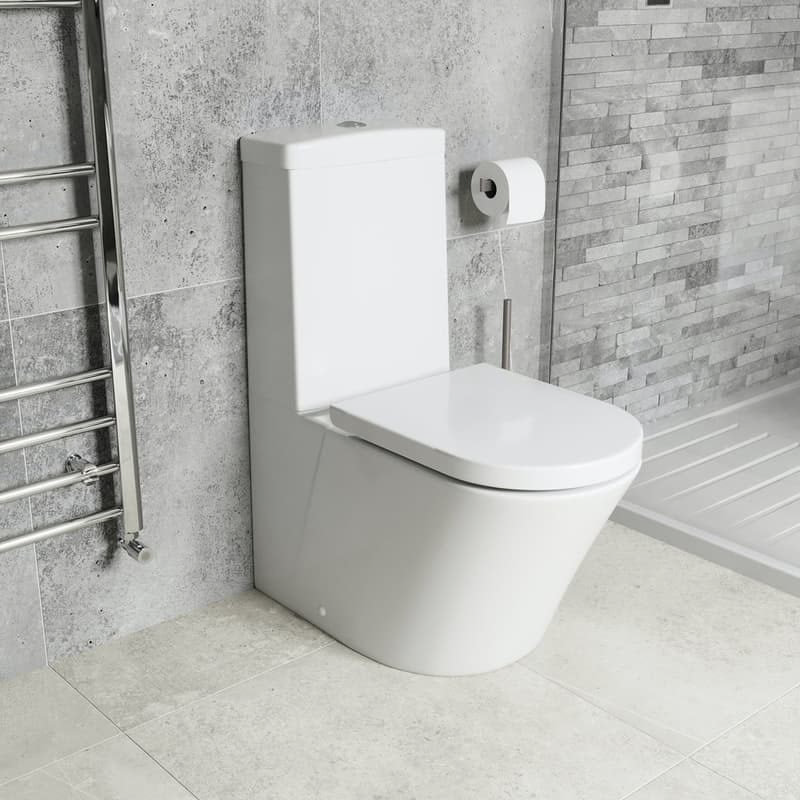
Back to wall toilet
Back to wall toilets are a great option for smaller bathrooms as the cistern can be concealed inside the wall or a furniture unit if needed. This is something of a modern style found in homes built more recently, creating a minimalist effect in the space. Whether you conceal the cistern within a unit or inside a wall cavity depends on how you want your room to look and the space available, with additional shelving and storage areas also an option as a result.
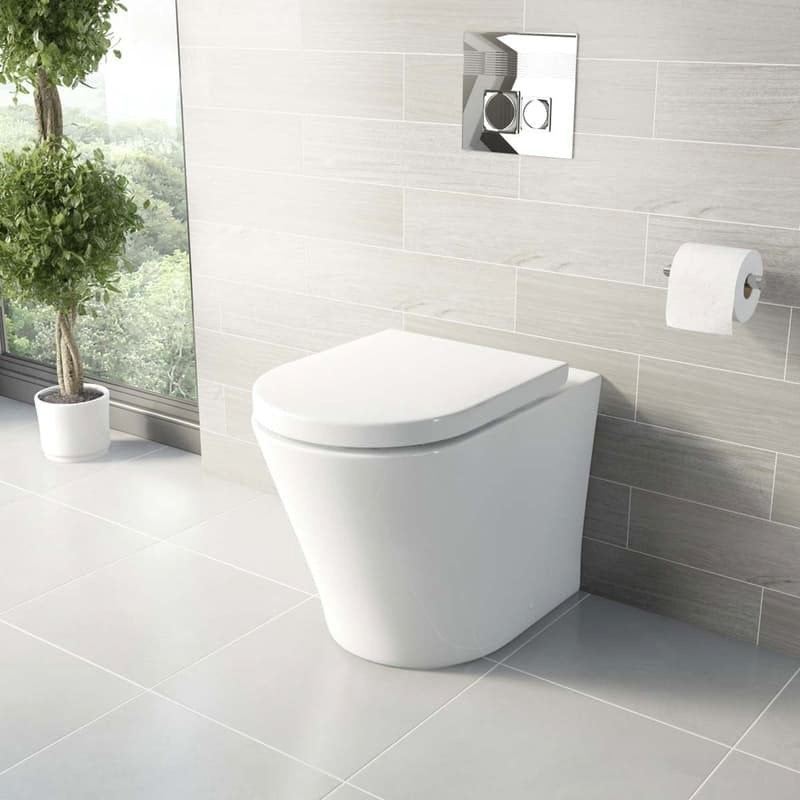
Wall hung toilet
When you look at a wall hung toilet, you will notice it is suspended from the floor, rather than being directly attached to it with a pedestal. They are similar in style to back to wall toilets because the cistern is, again, hidden behind the wall. This is not a traditional style of toilet and has a contemporary feel that is sleek and unobtrusive. They are also a great choice if there is not much space in your toilet or bathroom, and the absence of a pedestal also opens up the space even further. Cleaning is also made easier as brushes and mops can clean underneath and around this style of toilet.
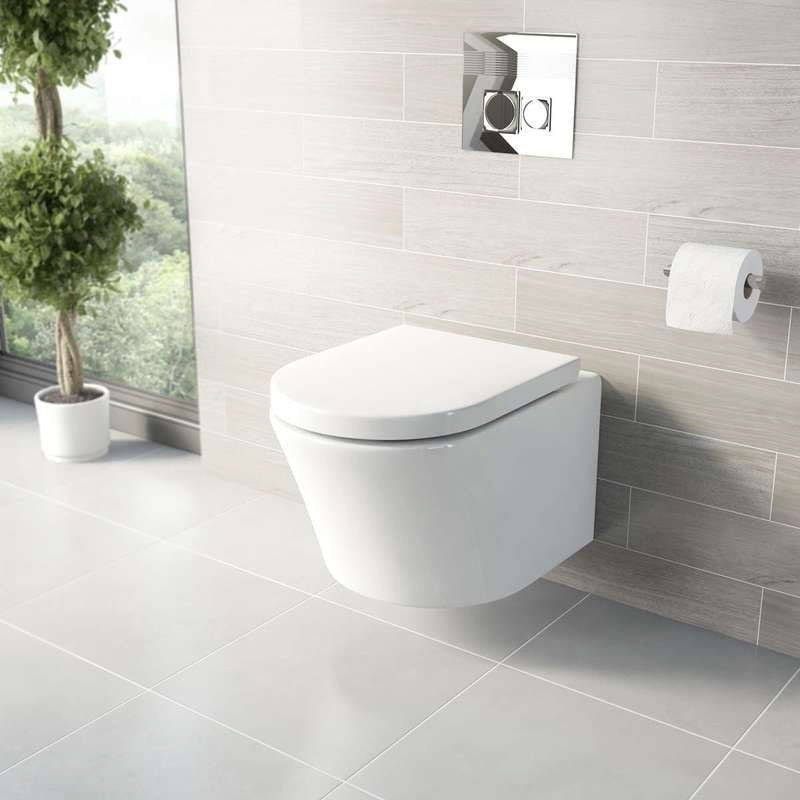
Yes, yes... but what are the four types of toilet?
Judging by the number of internet searches on this subject, many people consider there to be four types of toilet rather than the three we’ve already discussed above. So, if this is true, what are the four types of toilet?
Well… the 3 types of toilet we’ve already listed (close coupled, back to wall and wall hung) are by far and away the most common found throughout the UK. However, there are potentially 2 further toilets to be added to that list: high and low level cistern toilets.
These 2 types of toilet are typically only found in period style bathrooms, ensuites or cloakrooms, as they are designed in a style which fell out of favour in modern times. More recently, they have experienced a resurgence in popularity, with many homeowners opting for a timeless, traditional décor in their bathrooms.
High level cistern toilets are characterised by a cistern that is attached high up on the wall, complete with long chain pull flush and flush pipe connection to the pan. A low level cistern works along the same principles, except the flush pipe connecting the cistern and pan is much shorter and a handle replaces the chain pull flush.
So, in answer to the question "what are the four types of toilet?", we can add high and low level toilets to the list which already includes close coupled, back to wall and wall hung toilets. But then, is this five types of toilet instead of four?
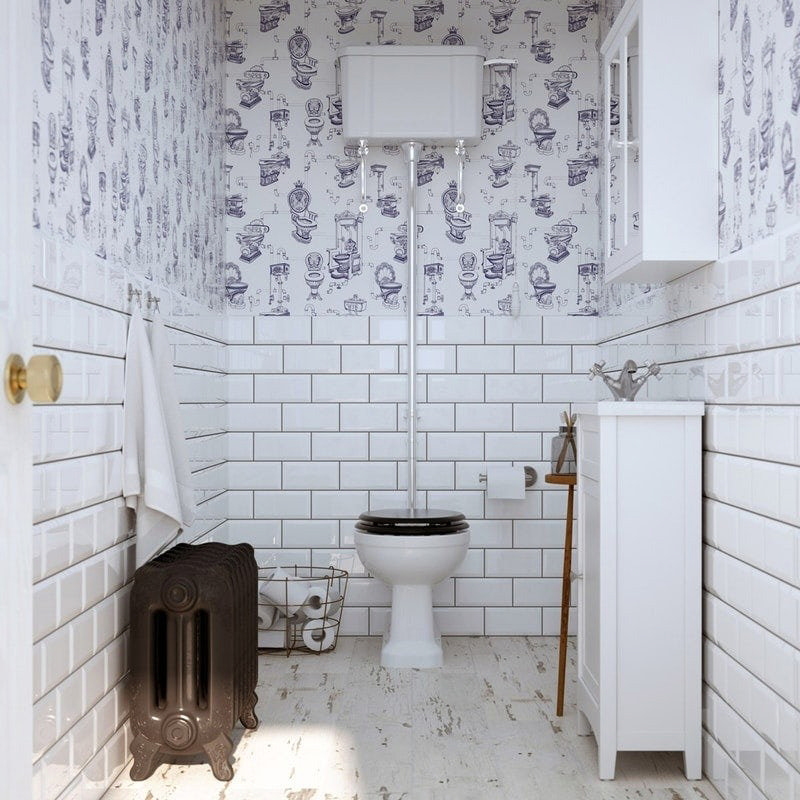
How to choose the right toilet for your bathroom
When looking at which new toilet to buy, space plays a central role, as it will not only affect the remaining floor space but also your time spent using it.
Smaller bathrooms will likely benefit from rounder bowls as they are more compact compared to elongated seats. If you have children, you may also want to consider setting your toilet at a lower height. Bowls positioned at a higher height will also be more favourable for the elderly or those who are less mobile, as they may be able to use the toilet without assistance.
Also think about how far away from the wall you will be whilst sitting on the toilet. No-one wants to feel crammed in, so try to create around a metre distance if possible. For anyone looking to replace an existing toilet, be sure to take measurements as it will make life much easier.
Toilets with a dual flush will prove to be a more cost-effective option in the long run. They only use the water needed for each flush and could help save money on utility bills, as part of an eco bathroom.
From buying guides to installation advice, you'll find all the expert help you'll need to choose and fit the perfect toilet for your bathroom. Whichever type of toilet you've set your heart on, you'll find a huge range of styles and designs at Victorian Plumbing, from traditional close coupled toilets to on-trend, contemporary wall hung models.

Sarah
Sarah is one of our resident bathroom experts here at Victorian Plumbing. She loves writing helpful bathroom design and DIY articles, as well as detailed buying guides.
